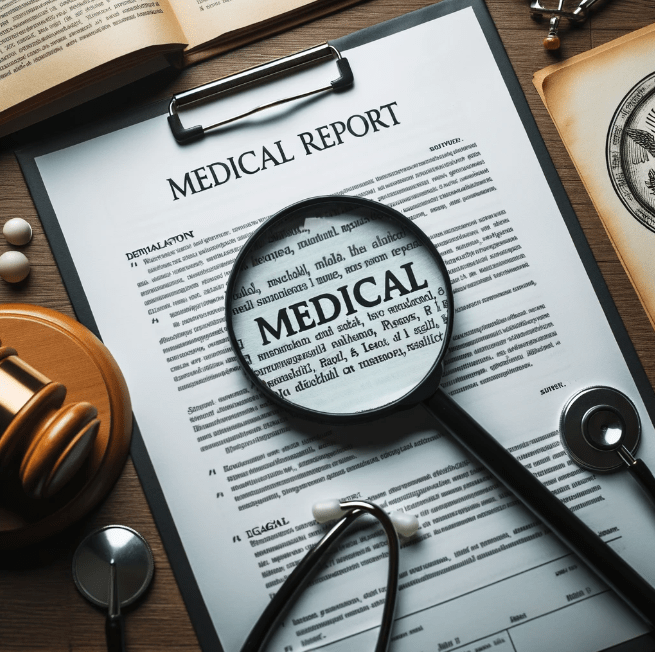Independent Medical Evaluations (IMEs) are essential in personal injury cases as they provide objective and impartial medical assessments.
These evaluations help determine the severity of injuries, identify rehabilitation needs, and establish fair compensation for the injured party.
By offering an unbiased evaluation of an individual’s injuries and treatment, IMEs play a significant role in establishing causation, assessing medical necessity, and understanding the long-term implications of injuries.
IMEs provide expert medical opinions that contribute to the integrity of the legal process, ensuring fairness and accuracy.
This article explores the importance and benefits of IMEs in personal injury cases, emphasizing their role in promoting justice and achieving a fair resolution for all parties involved.
Ensuring Objective Assessment
Countering Potential Bias
Personal injury cases require an impartial medical assessment that counters potential bias from the treating physician or insurance company. The treating physician may be influenced by the patient’s personal circumstances or their ongoing relationship, leading to a biased assessment. Additionally, insurance companies may try to minimize the extent of injuries to avoid paying adequate compensation. To counter these biases, Independent Medical Evaluations (IMEs) are essential.
Fresh Perspective
IMEs provide a fresh perspective by offering an unbiased analysis of the patient’s condition. Since the evaluating physician has no prior involvement in treating the injured party, they can provide an objective assessment of the injuries, treatment, and medical condition. This unbiased viewpoint adds credibility to the evaluation and ensures a fair and accurate understanding of the individual’s medical situation.
Objective Medical Opinion
IMEs offer an objective medical opinion that holds weight in the legal process. The medical professional conducting the evaluation has no personal or financial interest in the case outcome, making their assessment impartial and trustworthy. This objectivity is crucial in facilitating a fair assessment of the injured party’s condition and determining the appropriate compensation they are entitled to.
Identifying Inconsistencies
IMEs play a vital role in identifying inconsistencies within the medical records or the injured party’s statements. By carefully reviewing medical records, conducting a physical examination, and assessing the patient’s history, an independent medical evaluator can detect any discrepancies that may exist. This scrutiny helps ensure that all relevant information is considered and inconsistencies are addressed, enhancing the overall accuracy of the medical evaluation.
Enhancing Legal Proceedings
IMEs significantly enhance the legal proceedings in personal injury cases. The impartial medical assessments provided by IMEs shed light on complex medical matters, offering valuable insights and opinions. These expert testimonies improve clarity and understanding, assisting both plaintiffs and defendants in presenting their case more effectively during settlement negotiations or in court. The admissibility of IME reports in court further underscores their influential role in the legal process.
The objective assessment provided by Independent Medical Evaluations is crucial in personal injury cases. By countering potential bias, offering a fresh perspective, providing an objective medical opinion, identifying inconsistencies, and enhancing legal proceedings, IMEs play a pivotal role in ensuring fairness, accuracy, and justice for all parties involved.
The Importance of IMEs in Establishing Causation and Medical Necessity
Establishing a Clear Link Between the Accident and Injuries
Independent Medical Evaluations (IMEs) in personal injury cases play a crucial role in establishing a clear link between the accident and the injuries sustained. This is vital in determining the responsibility of the party at fault and ensuring that the injured party receives proper compensation for their losses. IMEs thoroughly review the medical evidence and accident details to provide an impartial opinion on whether the injuries were directly caused by the accident in question.
Addressing Questions of Causation
IMEs help address any questions regarding causation that may arise during personal injury cases. By carefully examining the medical records, diagnostic tests, and other relevant documents, IMEs can determine whether the injuries resulted directly from the accident or if there were pre-existing conditions that could have contributed to the injuries. Conducting a comprehensive assessment allows IMEs to provide an unbiased evaluation of causation, which is crucial in establishing the liability of the defendant.
Assessing Medical Necessity
IMEs also play a vital role in determining the medical necessity of current or future treatments for the injured party. This involves reviewing medical records, treatment plans, and evaluating the effectiveness and reasonableness of the prescribed treatments. IMEs provide an objective opinion on whether the treatments are necessary and aligned with the injuries sustained. This helps prevent unnecessary medical costs and ensures that the injured party receives appropriate and reasonable medical care.
Impartial Expert Opinions
IMEs offer independent and expert opinions, which can be highly influential in personal injury cases. The medical professionals conducting IMEs have no personal or financial interest in the outcome of the case, allowing them to provide unbiased assessments. Their expert opinions carry weight in court, assisting the judge or jury in understanding complex medical matters. IME reports can help clarify medical facts, establish causation, and determine the necessity of treatments, helping both parties involved in the case navigate the legal process with greater clarity and accuracy.
Evaluating the Extent of Injuries and Disability
Assessing the Severity of Injuries
Independent Medical Evaluations (IMEs) play a crucial role in accurately evaluating the severity of injuries sustained by the injured party. Qualified medical professionals conducting IMEs carefully analyze medical records, diagnostic tests, and imaging to determine the extent of the injuries. This assessment helps establish the impact of the injuries on the individual’s overall health and well-being.
Assessing Long-Term Implications
IMEs go beyond assessing immediate injuries and also consider the long-term implications. These evaluations take into account the potential impact of the injuries on the individual’s functional abilities, quality of life, and future prognosis. By thoroughly assessing the long-term effects, IMEs contribute to determining the appropriate compensation that accurately reflects the extent of the injuries sustained.
Determining Disability
In personal injury cases, it is crucial to determine the level of disability resulting from the injuries. IMEs play a critical role in evaluating the degree of impairment and functional limitations experienced by the injured party. This evaluation helps establish the need for ongoing medical treatments, rehabilitation, and the requirement for assistive devices or accommodations.
Impact on the Individual’s Daily Life
IMEs consider the impact of the injuries on the individual’s ability to perform daily activities such as self-care, work, recreational pursuits, and social interactions. By assessing the limitations imposed by the injuries, IMEs contribute to determining the appropriate compensation for pain and suffering, loss of enjoyment of life, and the need for ongoing support or assistance.
Implications for Future Medical Expenses and Loss of Earning Capacity
IMEs also help evaluate the financial implications of the injuries in personal injury cases. By assessing the long-term medical needs of the injured party, including necessary treatments and potential complications, IMEs assist in estimating future medical expenses. Additionally, these evaluations help determine the impact of the injuries on the individual’s earning capacity, considering factors such as diminished ability to work, requirements for retraining, or career limitations.
Independent Medical Evaluations are instrumental in assessing the extent of injuries, determining disability, and evaluating the long-term implications for the injured party in personal injury cases. By examining the severity of injuries, their impact on daily life, and potential future expenses, IMEs contribute to establishing fair and just compensation. Their role in determining loss of earning capacity further strengthens the accuracy and fairness of the legal process.
Expert Witness Testimony
Independent Medical Evaluations (IMEs) play a crucial role not only as unbiased assessors but also as expert witnesses in personal injury cases. Their involvement goes beyond the examination and assessment of an individual’s condition; they provide valuable medical opinions that aid in resolving complex legal matters. Here are several ways in which IMEs contribute to the legal process:
Providing Insight into Complex Medical Matters
IMEs possess specialized knowledge and extensive experience, enabling them to explain complex medical details in a manner that is accessible to non-medical professionals. They can offer explanations of medical terminology, diagnoses, treatment options, and expected outcomes, ensuring that the court and involved parties fully understand the medical aspects of the case. By providing invaluable clarity, IMEs help the legal system make informed and well-grounded judgments.
Influence in Settlement Negotiations
IME reports hold significant weight during settlement negotiations. When an expert medical opinion supports the injured party’s claim, it increases the likelihood of a favorable settlement agreement. IMEs provide an objective and independent perspective that carries substantial credibility in negotiations. Their presence can facilitate a fair resolution for all parties involved by providing an unbiased assessment of the medical evidence.
Admissibility in Court
IME reports are typically admissible in court as evidence, provided they meet the relevant legal requirements. The expert witness testimony provided by an IME can play a crucial role in both bench trials and jury trials. Judges and juries often rely on these expert opinions to understand the medical aspects of the case and make informed decisions based on their interpretations of the evidence presented. By presenting reliable medical evidence, IMEs contribute to the fairness and integrity of the court process.
Strengthening the Legal Process
IMEs play a vital role in safeguarding the integrity of the legal process. Their expert witness testimonies help prevent the manipulation or misrepresentation of medical information, ensuring fairness and accuracy in the pursuit of justice. By relying on the objective assessments and opinions of IMEs, the court system can make well-informed judgments based on reliable medical evidence.
Independent Medical Evaluations not only provide unbiased assessments but also serve as expert witnesses in personal injury cases. Their expertise in complex medical matters, influence in settlement negotiations, admissibility in court, and contribution to the integrity of the legal process make IMEs indispensable in ensuring fair resolutions for all parties involved.
Safeguarding the Legal Process: Ensuring Fairness and Accuracy with IMEs
Independent Medical Evaluations (IMEs) are essential for preserving the integrity of personal injury cases and promoting fairness and accuracy. By providing unbiased assessments and fact-based opinions, IMEs contribute to the pursuit of justice and protection of the rights of the injured party.
Preserving the Integrity of Personal Injury Cases
a. Countering Bias: IMEs serve as a valuable countermeasure against potential bias from treating physicians or insurance companies, offering an impartial evaluation of the injured party’s medical condition.
b. Objective Perspective: Expert opinions derived from IMEs are rooted in objective assessments of medical evidence, providing an unbiased perspective that is crucial in personal injury cases.
Detecting Fraudulent Claims and Preventing Unnecessary Treatment
a. Verifying Injuries: IMEs play a crucial role in verifying the legitimacy of injuries claimed by the injured party, thereby reducing the risk of fraudulent claims.
b. Evaluating Treatment Necessity: By assessing the necessity of current and future medical treatments, IMEs help prevent unnecessary procedures and expenses, safeguarding the injured party and the legal system.
Facilitating Settlement Negotiations
a. Providing Objective Information: IME reports offer valuable objective information that can facilitate settlement negotiations between involved parties, enhancing the efficiency and effectiveness of the process.
b. Expert Testimony: IME experts can provide testimony in court, offering their professional opinion on complex medical matters, improving clarity and understanding that can influence settlement negotiations and effectively support the injured party’s case.
Ensuring Fair Compensation
a. Determining Reasonable Compensation: IMEs assess the extent of injuries, disability, and their impact on the injured party’s quality of life, aiding in determining appropriate compensation for pain and suffering, future medical expenses, and loss of earning capacity.
b. Preventing Overcompensation: IMEs contribute to avoiding overcompensation by providing an objective evaluation of the injured party’s injuries, ensuring that the compensation awarded is fair and justified.
Independent Medical Evaluations play a crucial role in safeguarding the legal process in personal injury cases. By promoting fairness and accuracy, these evaluations provide an unbiased assessment of injuries, verify their legitimacy, deter fraudulent claims, and prevent unnecessary medical treatment. Furthermore, as expert witnesses, IMEs enhance the efficiency of settlement negotiations and contribute to fair compensation for the injured party. Overall, IMEs strengthen the integrity of personal injury cases, benefiting both plaintiffs and defendants.
Conclusion
Independent Medical Evaluations (IMEs) serve a critical purpose in personal injury cases by offering impartial and unbiased assessments.
By providing objective evaluations of injuries, medical conditions, and treatments, IMEs ensure fairness and accuracy when determining appropriate compensation for the injured party.
The significance of IMEs lies in their ability to counteract potential bias, establish causation, evaluate the necessity of medical treatments, assess the severity of injuries, and deliver expert medical opinions.
By upholding the integrity of the legal process and deterring fraudulent claims, IMEs contribute to the pursuit of justice.
They provide clarity and understanding by offering essential evidence that benefits both plaintiffs and defendants in personal injury cases.
IMEs are invaluable in promoting transparency and fairness, making them a vital component of the personal injury claim process.
Further Considerations
1. Subjectivity and Bias: One of the key challenges in independent medical evaluations (IMEs) is ensuring an impartial assessment. Since IMEs are often commissioned by one party involved in the personal injury case, there is a potential for bias or subjectivity in the evaluation process. This can undermine the credibility and reliability of the assessment, affecting the fairness of the case outcome.
2. Complexity of Medical Conditions: Personal injury cases often involve complex medical conditions that require a deep understanding and knowledge of various medical disciplines. IMEs must accurately evaluate the medical condition, its causation, and determine any potential long-term impact on the injured party’s health. The complexity of these cases can pose challenges for IMEs in accurately assessing the medical aspects and reaching informed conclusions.
3. Time Constraints: IMEs must be conducted within a specific timeframe, often imposed by the court or legal proceedings. This time constraint can add pressure on medical professionals involved in conducting the evaluation. It may limit the thoroughness of the assessment or the ability to gather all necessary medical records, resulting in incomplete or inadequate evaluations.
4. Lack of Access to Medical History: IMEs heavily rely on the medical history of the injured party to assess the extent of the injuries and their impact. However, obtaining comprehensive access to medical records can be challenging, especially if the injured party seeks to limit the disclosure of past medical information. This lack of access to complete medical history can compromise the accuracy and comprehensiveness of the IME report.
5. Differing Medical Opinions: In personal injury cases, there may be conflicting medical opinions from different healthcare professionals involved, including treating physicians and independent medical experts. These differing opinions can create challenges for IMEs, as they are required to evaluate the credibility and reliability of these opinions. Evaluating conflicting medical opinions objectively and reaching a fair and accurate conclusion can be a complex and challenging task for IME professionals.
FAQs About Independent Medical Evaluations in Personal Injury Cases
What qualifications do medical professionals conducting Independent Medical Evaluations (IMEs) have?
Answer: Medical professionals conducting IMEs are typically specialists in the relevant field, such as orthopedics, neurology, or physical therapy, and possess the necessary expertise to evaluate the specific injuries in question.
How are IMEs different from regular medical examinations?
Answer: IMEs differ from regular medical examinations in that they are conducted by doctors who have no prior involvement in treating the injured party. This ensures an unbiased and objective evaluation.
Can an injured party refuse to undergo an IME?
Answer: In some cases, an injured party may have the right to refuse an IME. However, this refusal could have legal consequences, such as affecting their ability to seek fair compensation or presenting their case in court.
Can an injured party bring their own medical expert to the IME?
Answer: In some cases, an injured party may be allowed to have their own medical expert present during the IME. However, this may vary depending on the jurisdiction and specific circumstances of the case.
How long does an IME usually take?
Answer: The duration of an IME can vary depending on the complexity of the case and the injuries involved. It can range from a few hours to a full day, depending on the extent of the evaluation required.
Are IME reports always admissible in court?
Answer: The admissibility of IME reports in court depends on the jurisdiction and the specific rules of evidence in that particular legal system. However, in most cases, IME reports are considered valuable evidence.
Who pays for the Independent Medical Evaluation?
Answer: In many personal injury cases, the party requesting the IME, often the insurance company, is responsible for covering the costs of the evaluation. However, it can vary based on the specific circumstances of the case and any agreements reached between the parties involved.
Can an injured party challenge the findings of an IME?
Answer: Yes, an injured party can challenge the findings of an IME. They can present evidence, medical records, or the opinion of another medical expert to dispute the conclusions of the IME report.
What happens if there is a disagreement between the IME and the treating physician?
Answer: In cases where there is a significant discrepancy between the IME and the treating physician’s assessment, the court or the parties involved may seek further clarification or order an additional evaluation to help resolve the disagreement.
Are IMEs only used in personal injury cases?
Answer: No, IMEs can be used in various legal contexts, including workers’ compensation claims, disability claims, and civil litigation cases, to provide objective medical assessments and expert opinions.
Glossary of Terms Used in the Article
1. Independent Medical Evaluations (IMEs) – Objective assessments conducted by medical professionals with no prior involvement in treating the injured party.
2. Personal Injury Cases – Legal disputes that arise when a person suffers harm or injury due to the negligence or intentional actions of another party.
3. Objective Assessment – An unbiased evaluation that is based on facts and evidence rather than personal opinions or biases.
4. Treating Physician – The healthcare professional responsible for the ongoing care and treatment of the injured party.
5. Insurance Company – An organization that provides financial coverage and compensation for certain risks or events, such as personal injury claims.
6. Impartial – Free from bias or favoritism, not influenced by personal opinions or external pressures.
7. Prognosis – The predicted outcome or course of a disease or injury, including the expected recovery time and potential long-term effects.
8. Causation – The relationship between a specific event, such as an accident, and the resulting injuries or damages.
9. Medical Necessity – The requirement for a medical treatment or procedure to be appropriate, reasonable, and essential for the care of the injured party.
10. Severity – The degree or extent of an injury, illness, or condition, often measured on a scale of mild to severe.
11. Disability – A physical or mental impairment that substantially limits one or more major life activities, resulting in a restricted ability to perform daily tasks or work-related activities.
12. Functional Abilities – The physical or mental capabilities that allow an individual to perform various tasks or activities.
13. Quality of Life – The overall well-being and satisfaction an individual experiences in different aspects of their life, including physical, mental, and social aspects.
14. Compensation – The financial reimbursement or payment provided to an injured party to cover their losses, including medical expenses, pain and suffering, and lost wages.
15. Pain and Suffering – The physical and emotional distress experienced by an individual as a result of an injury or accident.
16. Future Medical Expenses – Anticipated costs for medical treatment, therapies, or interventions that an injured party may require in the future as a result of their injuries.
17. Loss of Earning Capacity – The reduction in an individual’s ability to earn income due to their injuries or disability.
18. Expert Witness – A qualified professional who provides an opinion or testimony based on their expertise and specialized knowledge to assist in legal proceedings.
19. Admissibility – The acceptance and allowance of evidence or testimony in a court of law as relevant and reliable.
20. Fraudulent Claims – False or exaggerated claims made by an individual seeking compensation for an injury or accident that did not occur or was not as severe as claimed.






